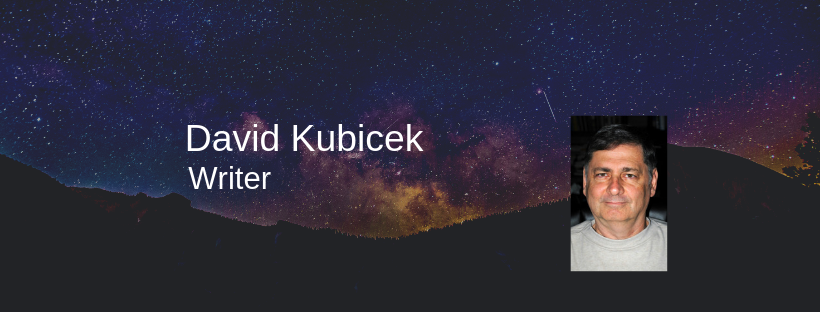by David Kubicek
Will We Still Have Paper Books in the Year 2119?
I believe that an eBook revolution is coming, that the future of reading will be digital. Citizens of that world 100 years from now will know what a paper book is. Convenience and cost for publishers and readers will eventually make digital books rule and physical books obsolete, relics to be found only in antique shops.
But all modern books by then will be digital–that is, if books haven’t morphed into some totally alien form of communication that we can’t possibly envision today [science fiction writers in the 1950s and ’60s completely missed the digital revolution].
This isn’t a popular idea. When I suggested it in a blog post several years ago, I got some comments from readers who proclaimed that physical books would never disappear. Just this week the issue was the subject of a Twitter thread where the initiating writer didn’t believe that digital would ever replace paper.
There is a saying that only two things in life are certain: death and taxes. I would add a third thing: change. As technology evolves, so does society.
Cost and Convenience Drive Change
Here are two examples.
Cost: In the early Twentieth Century no one thought motorcars would ever amount to more than playthings for the wealthy because of their cost. Then Henry Ford adapted the assembly line to auto production, which reduced the cost to a point where the working class could afford automobiles. Convenience: You can go farther and faster in a car than in a stage coach, and you don’t have to change to a fresh car every 20 miles.
Convenience: The general store where the clerk would collect the items on your list evolved into the self-service grocery store which evolved into the big box one-stop store where you can buy groceries, shoes, clothing, linens, household appliances, get your hair styled, do the banking, get an eye exam and even have your car serviced while you shop.
Why I Believe Digital Books Will Replace Paper
Convenience: You can carry around an entire library of digital books in a thin device the size of a trade paperback book.
Convenience: Digital books will not wear out–their bindings won’t crack, and their pages won’t get yellow and brittle with age.
Cost: Publishers won’t have to spend money on paper, printing, warehousing and shipping.
Cost and Convenience: Publishers will be able to keep titles with modest sales in circulation longer because no longer will they take up valuable warehouse space–this will be a boon to both authors and publishers–and they won’t have to compete for shelf space in bookstores (which likely will have gone exclusively to a digital book model).
The eBook Revolution
The Kindle reader was released in 2007, and within 10 years e-books made up 17% of the market, while paperbacks accounted for 34.3% and hardcovers for 35.7%. When you look at the chart showing book sales over the past decade it may seem as if the e-book market is shrinking, but Brady Dale explains why it may only appear that way.
The bottom line is, I believe convenience and cost for publishers and readers will eventually make digital books king and physical books obsolete, and the reading experience 100 years from now will be quite different than it is today.
What do you think?
For more information about David Kubicek’s books click here.
